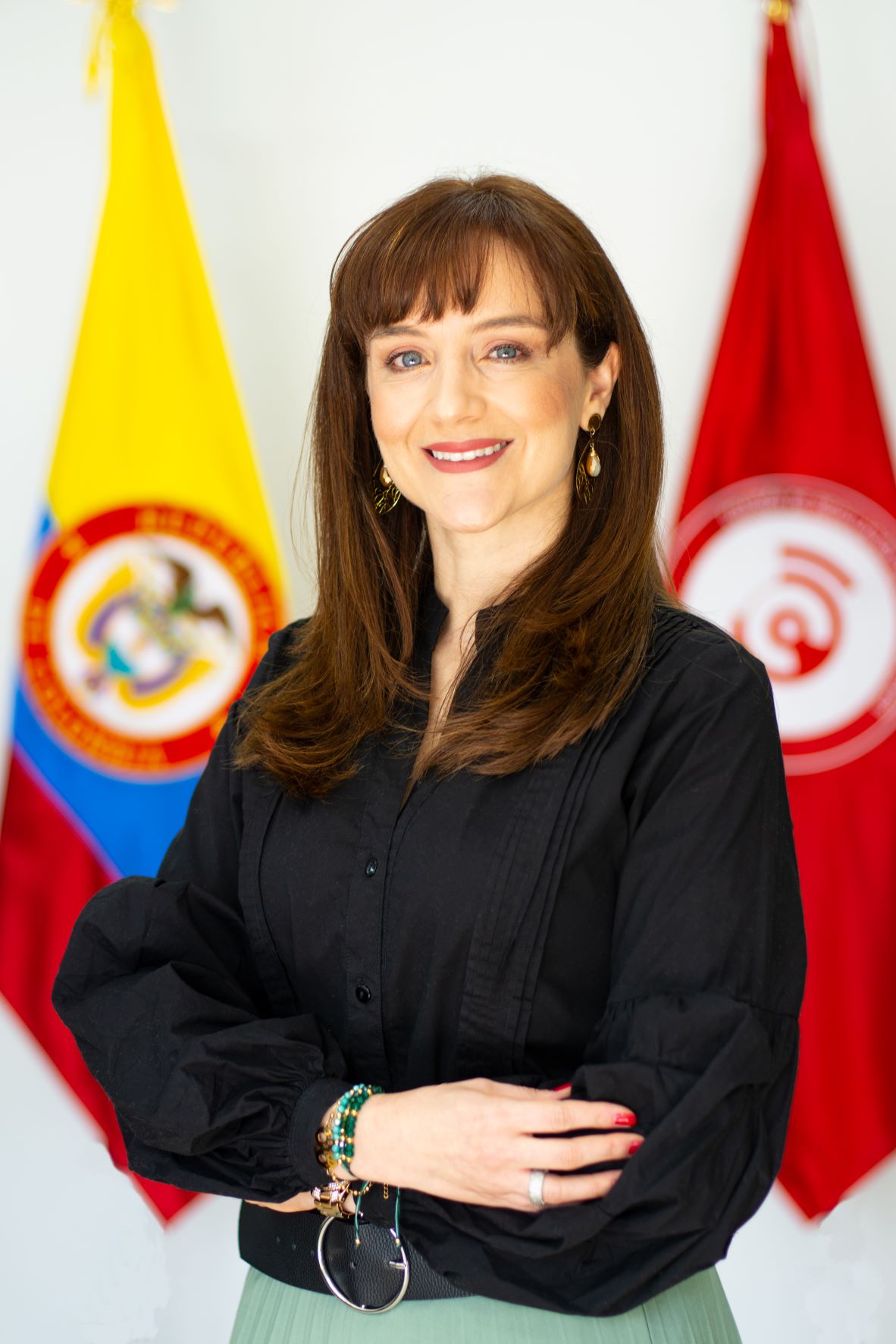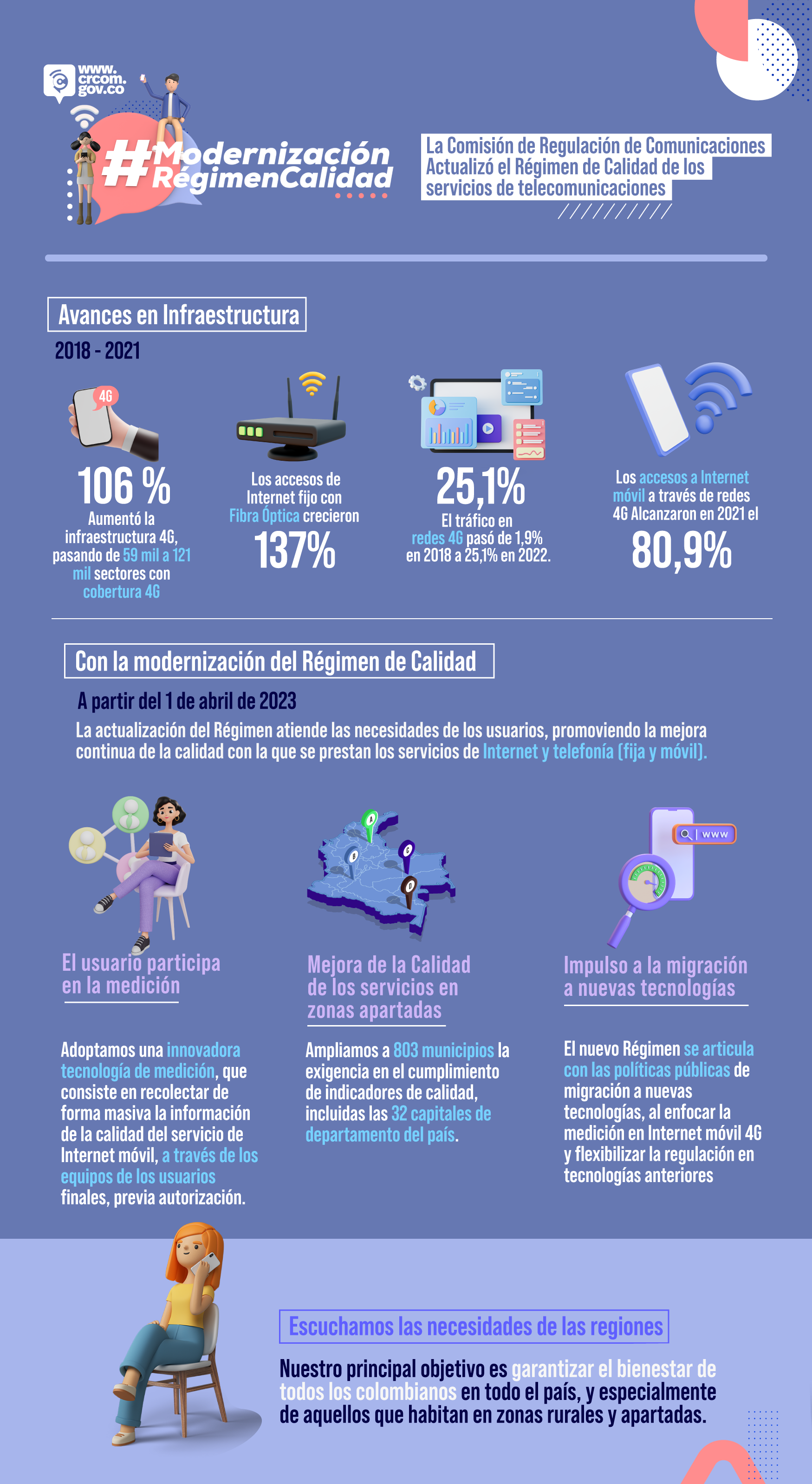Regulations / Telecommunications

Paola Bonilla Castaño
The Communications Regulation Commission carried out a comprehensive update to the Quality Regime of telecommunications services, to meet the needs of users the industry and encourage the different operators to continuously improve the quality with which voice and data (fixed and mobile) and television services are provided.
The Executive Director of the Commission, Paola Bonilla Castaño, said that “The new quality system incorporates significant improvements, and its modernization responds to the current reality of service provision, seeking the well-being of all Colombians, and especially those living in rural and remote areas. At the same time, it incorporates incentives for technological updating and tools for proper monitoring by users and authorities. In addition, it was the result of a work that had a high participation of the sector”, she pointed out.
The Communications Regulation Commission issued Resolution CRC 6890 of 2022, through which the Quality Regime of telecommunications services is updated.
In the process of regulatory modification, the great participation of the industry in the construction of solutions to the identified problems stands out, within which it has been important to listen to the needs of the regions in terms of availability and quality in the provision of services. services.
With the modernization contained in the new regime, the Commission highlighted that as of April 1, 2023, Colombians will actively participate in measuring the quality of the mobile Internet service, with the implementation of an innovative technology that consists of collecting massively the information on the quality of the service, through the equipment of the end users, for which they will have the option of installing an application for managing quality measurements and authorizing the use of the respective information.
The new regime emphasizes the measurement and fulfillment of quality goals in 4G mobile Internet services, considering the high demand that these services have today (currently 82% of users connect through this type of networks). In this way, the regulation is articulated with the process of deployment and migration to new technologies advanced by the providers and leveraged in the provisions of the sector’s public policy.
The resolution issued extends to 803 municipalities the requirement to comply with quality indicators, including the 32 departmental capitals of the country. Likewise, a total of 320 municipalities will remain exempt from said obligation in which the regulator identified the existence of challenges in terms of infrastructure deployment, as these are in places of difficult access and in order to continue promoting the massification of services.

